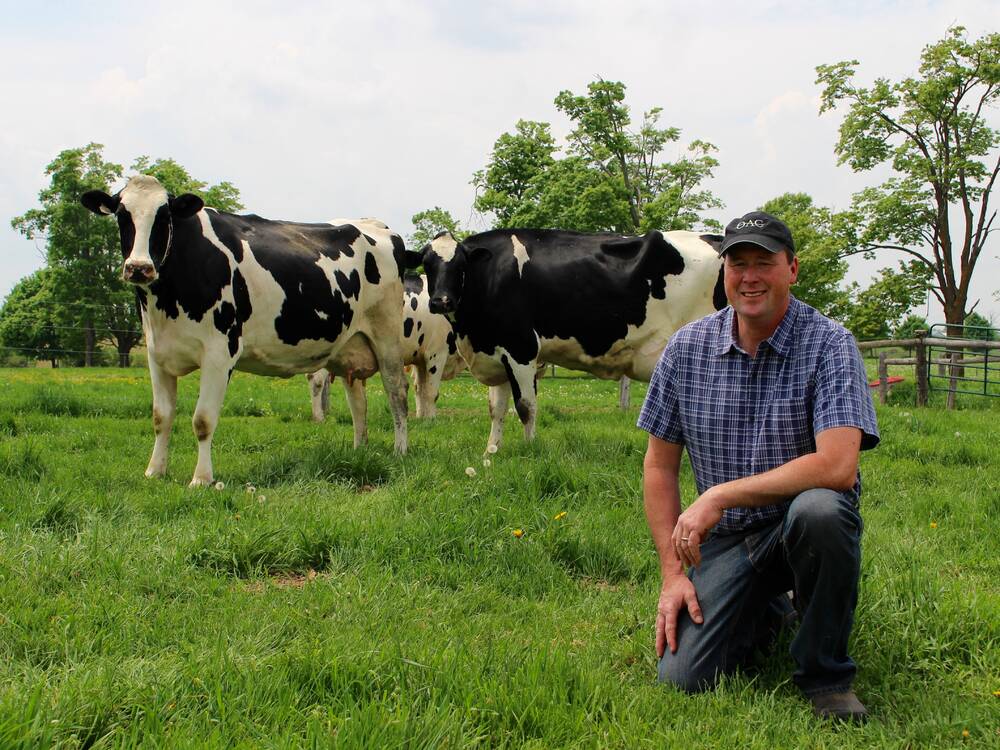Avoiding the pitfalls of succession planning on the family farm

As a farmer with over 56 years of experience, I have witnessed firsthand the challenges and potential pitfalls of succession planning for family-owned agricultural operations.
Read Also


Tim May talks about mental health priorities on the farm
Ontario dairy farmer Tim May says the relationship between farmers and their livestock is sometimes misunderstood.
While the process is crucial for ensuring a smooth transition to the next generation, it is often loaded with emotional complexities and the risk of family feuds if not approached with care and foresight.
One of the most common traps is the tendency to rely too heavily on external professionals, such as accountants, lawyers and succession coaches.
While their expertise can be valuable, I’ve seen their efforts fail for many farm families, leading to the dissolution of once-thriving operations.
All these projects start with the greatest of intentions, but unforeseen circumstances, such as divorce, a partner with a gambling problem, fraud, change in values, etc. can skew the outcome. The innocent parties, through no fault of their own, are left cleaning up the finances and the aftermath that follows. Sadly, these situations often end up in shattered relationships where they can no longer enjoy family ties and get togethers.
The wisdom imparted by my parents was to treat inheritance as a matter solely between the parents, with professionals brought in only to ensure legal compliance with their decisions.
Another pitfall is the assumption that multiple siblings can effectively co-manage the family farm. As my father wisely advised, “there is hardly a farm big enough for two brothers. If it is big enough for two brothers, it is not big enough for two brothers and their wives. And if it could be big enough for two brothers and their wives, it will never be big enough for their offspring.”
This recognition of the inherent conflicts that can arise from shared ownership and decision-making is crucial for avoiding future disputes and preserving family harmony. An observation I have made is often the offspring lose interest in the operation because of tension, favouritism and lack of meaningful input.
When large corporations need to turn things around, they bring in a CEO. The difference between a CEO stepping in and a farm transition is, if it goes sideways, you can replace the CEO. A farm transition gone badly hardly ever results in a second chance.
My parents’ approach, which my wife and I have embraced and passed to our own children, was to provide each child with an equal amount of seed money upon reaching adulthood. This money was not intended for buying into the family business, but rather for pursuing their own entrepreneurial endeavors, whether in agriculture or other industries.
This practice fostered a sense of fairness but also encouraged self-reliance and entrepreneurship among the next generation.
While this approach may seem unconventional, it has proven invaluable in our family’s experience. By maintaining a clear separation between the family and the business, with each entity operating independently yet collaboratively, we have avoided many of the pitfalls that often plague succession planning efforts.
This principle, though initially met with resistance from professionals, has become the benchmark for how our extended family of nine different farming operations conducts business together harmoniously. We pay each other for services rendered at market value, with full freedom to go elsewhere for services if so desired.
As I reflect on my decades in agriculture, I am reminded of the visionary leaders who have shaped the industry in Canada, such as Eugene Whalen, Lyle Vanclief and Craig Connell. Their forward-thinking policies and initiatives have benefited farms across the country, demonstrating the power of strategic planning, business management, a commitment to the greater good and rural infrastructure, resulting in a prosperous rural economy.
In an era where corporate farms are increasingly prevalent and often blowing up due to short-sighted decision-making, it is more crucial than ever for family-owned operations to prioritize succession planning with a long-term vision.
By holding open communication, embracing individual ownership, and encouraging entrepreneurship, we can, by the grace of God, hope for a prosperous future for Canadian agriculture while preserving the values and legacy of our family farms.
Source: Farmtario.com

